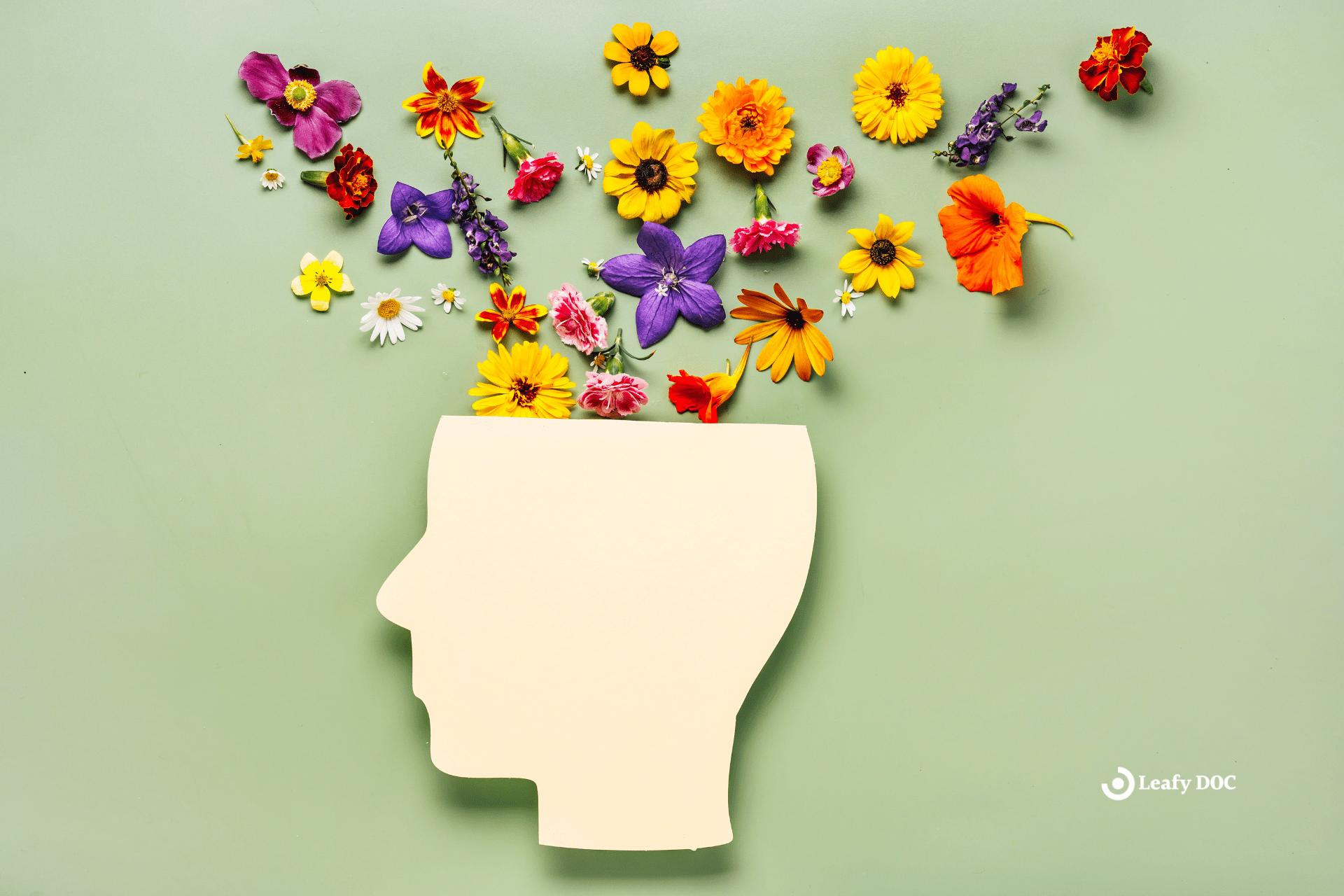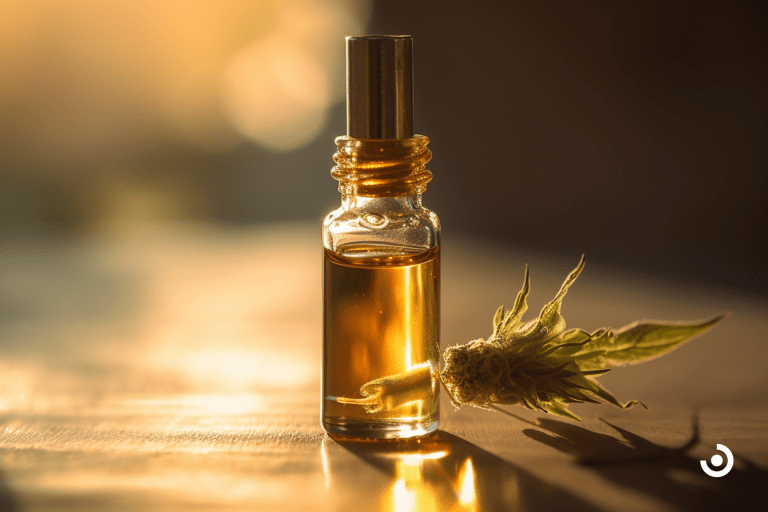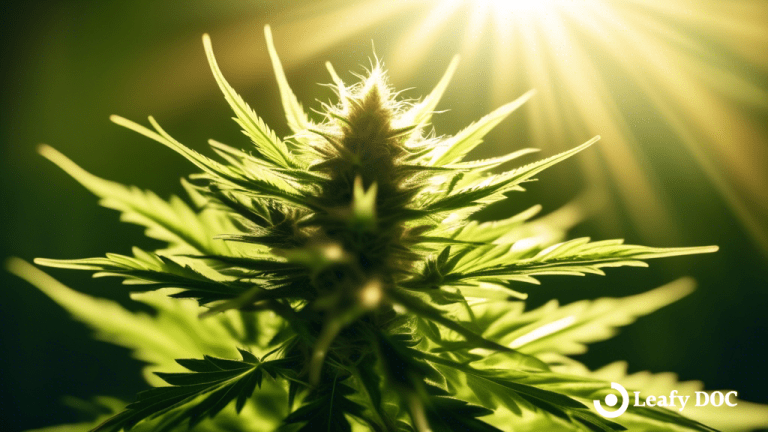Marijuana and Mental Health: Understanding the Link and Risks
by Haley Mills · May 2, 2023
Explore the link between marijuana and mental health and gain a better understanding of the potential risks and benefits. Learn how cannabis can impact your mental well-being.

Marijuana has been a subject of contentious debate for many years, with the legalization movement gaining momentum in various parts of the world. As more and more people gain access to cannabis, it is vital that we fully understand the potential effects of marijuana use on mental health. The topic of marijuana and mental health is complex, with research continually unveiling new insights into the relationship between the two.
This article delves into the current body of knowledge on this subject, exploring the potential benefits and risks associated with cannabis use and the connection between marijuana and various mental health disorders. By providing a comprehensive understanding of the link between marijuana and mental health, we aim to empower readers to make informed decisions about their own cannabis use or that of their loved ones.
Medical Marijuana & Mental Health Statistics
- According to a 2017 National Survey on Drug Use and Health (NSDUH), approximately 4.1 million U.S. adults used marijuana for medical purposes.
- A survey conducted in 2018 found that around 62% of medical marijuana users reported using cannabis to treat chronic pain.
- In a 2019 study, 81% of participants reported decreased anxiety symptoms after using medical cannabis.
- Research indicates that medical marijuana may help alleviate symptoms of PTSD, with a 2014 study revealing a 75% reduction in symptom severity among patients using cannabis.
- A 2020 study found that nearly 40% of patients with treatment-resistant depression experienced a significant improvement in symptoms after using medical cannabis.
- Medical marijuana is effective in reducing the use of prescription opioids for pain management, with a 2016 study showing a 64% decrease in opioid use among chronic pain patients using cannabis.
- A 2018 study revealed that 34% of medical cannabis users reported improved sleep quality, while 45% reported a decrease in the use of sleep medications.
- Despite the potential benefits, marijuana use has been associated with an increased risk of developing a mental health disorder like psychosis, particularly among those with a genetic predisposition or a history of childhood trauma.
- Regular marijuana use during adolescence has been linked to a two-fold increased risk of developing schizophrenia or other psychotic disorders in adulthood.
- A 2017 review of studies found that heavy marijuana use was associated with a higher risk of developing mental health problems like depression, particularly among individuals who started using cannabis before 18.
How Can Medical Marijuana Be Used for Mental Health?
Medical marijuana can be used as a treatment option for various mental health conditions by targeting specific symptoms and providing relief. The primary active compounds in cannabis, such as tetrahydrocannabinol (THC) and cannabidiol (CBD), interact with the body’s endocannabinoid system, which plays a crucial role in regulating mood, stress response, and other cognitive functions. By modulating the endocannabinoid system, medical marijuana may help alleviate anxiety, depression, sleep disturbances, and mood fluctuations.
It is essential to work closely with a healthcare professional when considering medical marijuana for mental health purposes, as individual responses may vary, and the optimal dosage, strain, and method of consumption can differ depending on the specific condition being treated and the patient’s unique circumstances.
What disorders does cannabis use potentially help?
Cannabis has shown promise in relieving a range of mental health disorders. The most common psychiatric disorders that may benefit from cannabis use include anxiety, post-traumatic stress disorder (PTSD), depression, and insomnia. In the case of anxiety and PTSD, cannabis, particularly strains high in CBD, may help reduce symptoms by decreasing overactivity in the amygdala, the brain region responsible for regulating fear and stress response. For depression, medical marijuana may help by boosting mood and alleviating feelings of hopelessness or despair.
Additionally, cannabis has been found to improve sleep quality and reduce the frequency of nightmares in individuals suffering from PTSD or other sleep disturbances. It is important to note that while cannabis may offer relief for certain mental health conditions, further research is necessary to understand its potential benefits and risks better, and it should be used under the guidance of a qualified healthcare professional.
Can medical cannabis cause psychosis?
Evidence suggests that cannabis use, particularly in high doses or with high THC content, can increase the risk of developing a psychotic disorder in some individuals. Several studies have found a link between marijuana use and an increased risk of psychotic symptoms, such as hallucinations, delusions, and disorganized thinking. The risk appears to be higher among individuals with a genetic predisposition to psychosis, a personal or family history of mental health disorders, or a history of childhood trauma.
It is also worth noting that the association between cannabis use and psychosis is stronger in cases of early and frequent marijuana use, particularly during adolescence when the brain is still developing. While not everyone who uses cannabis will develop psychosis, it is essential to consider the potential risks and be aware of the factors that may increase susceptibility, especially for individuals who are already vulnerable due to genetic or environmental factors.
Can it cause other mental disorders?
While medical cannabis has demonstrated potential therapeutic benefits for certain mental health conditions, it is also associated with some risks, including developing or exacerbating other mental disorders. Heavy or long-term marijuana use has been linked to an increased risk of developing depression, particularly among individuals who started using cannabis before 18.
Additionally, cannabis use has been associated with a heightened risk of anxiety disorders. However, the relationship is complex, and some research suggests that low doses or strains high in CBD may help alleviate anxiety symptoms in some instances.
It is also essential to consider the potential impact of cannabis use on existing mental health disorders; for instance, marijuana use might exacerbate symptoms of bipolar disorder or interfere with the effectiveness of prescribed medications. In conclusion, while medical cannabis may offer relief for some mental health conditions, it is crucial to be aware of the potential risks and use it responsibly under the guidance of a qualified healthcare professional.
How do I know when I’m using too much marijuana?
Recognizing when you might be using too much marijuana involves paying attention to both your physical and mental well-being and the impact of your cannabis use on various aspects of your life. Some signs that you may be using too much marijuana include:
- Developing a tolerance, which leads to the need for increased amounts of cannabis to achieve the desired effects.
- Experiencing withdrawal symptoms, such as irritability, insomnia, or loss of appetite, when you stop using marijuana or reduce your consumption.
- Struggling to control your marijuana use, such as consuming more than you intended or being unable to cut back despite wanting to do so.
- Prioritizing cannabis use over other responsibilities, such as work, school, or relationships, leads to negative consequences in these areas and can indicate a cannabis use disorder.
- Neglecting self-care or personal hygiene due to frequent marijuana use.
- Experiencing physical health problems, such as respiratory issues or increased heart rate, may be related to marijuana use.
- Noticing a decline in your mental health, including increased anxiety, depression, or the onset of psychotic symptoms.
- Facing legal or financial difficulties as a result of your cannabis use.
Suppose you are concerned about using too much marijuana or that you or a loved one may develop cannabis use disorders. In that case, seek support from a healthcare professional who can help you assess your cannabis use and develop a plan to reduce or eliminate it if necessary.
Which cannabinoids put people at greater risk for mental disorders?
Among the various cannabinoids found in cannabis, the primary psychoactive compound, tetrahydrocannabinol (THC), has been most consistently linked to an increased risk of mental health disorders. THC is responsible for the “high” that users experience and can also cause feelings of anxiety, paranoia, and altered perceptions in some individuals.
High-THC strains of marijuana have been associated with a higher risk of psychosis, particularly among those with a genetic predisposition or a history of mental health issues. Additionally, heavy or prolonged use of high-THC cannabis has been linked to an increased risk of developing depression and anxiety disorders.
Conversely, cannabidiol (CBD), another prominent cannabinoid, has demonstrated potential therapeutic benefits for various mental health conditions without the psychoactive effects associated with THC. CBD has been found to help alleviate anxiety, depression, and even some psychotic symptoms. As a result, strains with a higher CBD-to-THC ratio may be preferable for individuals seeking the potential therapeutic benefits of cannabis without the heightened risk of mental health issues associated with high-THC strains.
What does science say to support marijuana and mental health?
The scientific literature on marijuana use for mental health is extensive, with numerous studies demonstrating the potential benefits of cannabis for various mental health conditions. Some key findings from the research include the following:
- Anxiety: A study published in the Journal of Affective Disorders in 2018 found that a single low-to-moderate dose of marijuana (precisely strains high in CBD) could temporarily reduce self-reported anxiety symptoms in users. This study supports the anxiolytic potential of cannabis (Loflin et al., 2018).
- PTSD: A 2014 study published in the Journal of Psychoactive Drugs reported that medical marijuana use led to a 75% reduction in PTSD symptom severity among participants. This study suggests that cannabis may have therapeutic effects for individuals suffering from PTSD (Greer et al., 2014).
- Depression: A study published in the Journal of Affective Disorders in 2019 found that medical cannabis users with treatment-resistant depression experienced significant improvements in depressive symptoms after initiating cannabis use. The study highlights the potential role of cannabis as an alternative treatment option for those not responding to traditional antidepressant medications (Turna et al., 2019).
- Sleep disturbances: A 2018 study published in the journal Medicines found that medical cannabis use was associated with significant improvements in sleep quality and a reduction in the use of sleep medications among participants. This study suggests that cannabis may offer relief for individuals suffering from sleep disturbances related to mental health conditions (Vigil et al., 2018).
- Opioid dependence: A 2016 study published in the Journal of Pain found that medical cannabis use was associated with a 64% decrease in opioid use among chronic pain patients. The study highlights the potential role of cannabis in reducing opioid dependence and addressing the opioid crisis (Boehnke et al., 2016).
Are there studies to prove cannabis use can lead to psychosis?
Let’s take a look at two separate bodies of research to see what scientists are saying:
The study “Cannabis Use and Mental Illness: Understanding Circuit Dysfunction Through Preclinical Models” by Raver and Keller (2021) aimed to summarize the current understanding of how cannabis use, particularly during adolescence, can lead to circuit dysfunction in the brain and contribute to the development of mental illnesses. The authors reviewed preclinical models (animal studies) to provide insights into the neurobiological mechanisms underlying the relationship between cannabis use and mental health disorders.
The study found that cannabis use, especially during critical periods of brain development, such as adolescence, can alter specific brain circuits involved in emotional regulation, reward processing, and cognitive functions. These circuit dysfunctions may contribute to developing or exacerbating mental health disorders, including anxiety, depression, and schizophrenia.
The study also emphasized the importance of considering individual differences in genetic and environmental factors that may increase vulnerability to the adverse effects of cannabis use on mental health. The authors highlighted the need for further research to understand better the complex relationship between cannabis use and mental health disorders and to develop targeted interventions to minimize the potential risks associated with marijuana use.
The study “Cannabis and Psychosis: Recent Epidemiological Findings Continuing the ‘Causality Debate” by Marconi et al. (2021) aimed to provide an updated overview of the epidemiological evidence on the relationship between cannabis use and psychosis, focusing on findings from recent longitudinal studies. The authors conducted a comprehensive review of the existing literature to assess the current state of knowledge in this area and to evaluate the potential causal relationship between cannabis use and the development of psychotic disorders.
In summary, the study found consistent evidence supporting an association between cannabis use and an increased risk of psychotic disorders. Several longitudinal studies have demonstrated that individuals who use cannabis are at a higher risk of developing psychosis than non-users. The risk increases with the frequency and intensity of cannabis use, especially at an earlier age. Moreover, the study found that the risk of psychosis or marijuana use disorder was higher for individuals using high-potency cannabis strains containing higher concentrations of THC, the primary psychoactive compound in marijuana.
However, the authors also noted that the causality debate remains ongoing, as some factors might confound the observed association between cannabis use and psychosis. These factors include genetic predisposition, exposure to other drugs, and pre-existing mental health vulnerabilities such as schizophrenia spectrum disorders from lifetime cannabis use. The authors emphasized the importance of continued research further to clarify the causal relationship between cannabis use and psychosis and to identify potential underlying mechanisms and susceptible populations.
Summary- Cannabis Use & Mental Health
In conclusion, the relationship between marijuana and mental health is multifaceted, with both potential benefits and risks associated with its use. While some studies suggest that cannabis may relieve certain mental health conditions, such as anxiety and PTSD, it is essential to recognize that these findings are not universally applicable, and individual responses may vary. Additionally, there is strong evidence suggesting cannabis-induced psychosis, particularly in vulnerable populations such as adolescents and those with a genetic predisposition.
As the legal landscape surrounding marijuana continues to evolve, it is crucial that we prioritize research in this area to understand better the complexities of the relationship between cannabis and mental health. Ultimately, informed decision-making and responsible use are vital in minimizing potential risks and maximizing the potential benefits of marijuana for mental health.
Last Updated: August 8, 2024
Get Approved for Your Medical Marijuana Card in Minutes!

Get Your Medical Card
Connect with a licensed physician online in minutes

Like This Article?
Share with your friends
Table of Contents
Keep Reading
-
Where Can I Get A Medical Marijuanas Card In Missouri
Want relief with medical marijuana? Learn how to get a medical marijuana card in Missouri and find out where to go for the ultimate relief you’ve been searching for. Don’t wait, click here now!
-
Understanding The Dosage Of Medical Marijuana Tinctures
Unlock the full potential of medical marijuana tinctures with our comprehensive guide on dosage. Find the perfect amount for your needs and experience the benefits today!
-
Capturing Moments: Exploring Cannabis And Photography
Unleash your creativity with cannabis and photography! Explore the captivating world of capturing moments in this unique blend. Click here to unleash your inner artist today!



